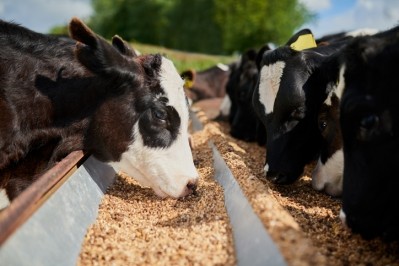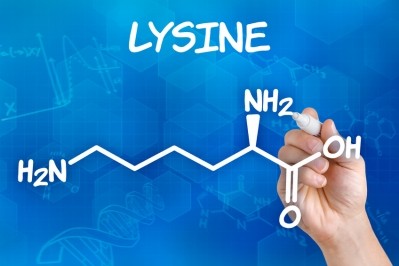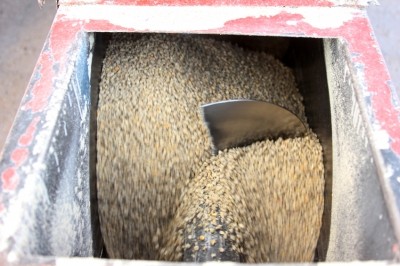Global BioChem to put the brakes on lysine production

The group, headquartered in Hong Kong and with production sites throughout China, is one of the biggest lysine manufacturers globally with an annual fermentation capacity of around 500,000 metric tons (MT).
Having considered the current operating environment of its lysine business, in particular the market demand and the average selling prices of lysine products as well as the intended relocation of production facilities, GBT said it has decided to scale down the production volume for lysine products planned for this year, up until December.
The amino acids producer said that, with effect from today, operation at its lysine production site, run by Changchun Baocheng Biochem Development Co, will be suspended.
The plant has annual production capacity of 200,000 MT.
“Production volume for lysine products will be adjusted according to market sentiment,” added the Chinese group.
Drop in poultry feed consumption
Recent months have seen a slump in demand for feed grade lysine in China due to ample supply and slow feed consumption arising out of diminished animal inventories.
Poultry feed demand, in particular, has seen a massive drop amid the fallout from the new outbreak of bird flu.
Shanghai JC Intelligence Co reports that China's poultry farming has suffered a loss of 20 billion yuan ($3.25bn) from the impact of avian flu on the sector over the past year.
Most poultry producers have cut or suspended production.
Consolidation forecast to tighten lysine supply
GBT expects consolidation to improve lysine supply and demand dynamics in the near future.
“It is expected that the [lysine] market will gradually improve with the elimination of weaker competitors in the industry. In view of the challenging market environment, the group will continue its cautious cost control approach by adjusting its production volume and enhancing its production efficiency,” said the amino acid manufacturer today.
The lysine supplier said it is well positioned “to strive through all challenges and will further solidify its leading position when the market picks up.”
Global Biochem played up the fact that as its amino acid production will be concentrated in the group’s facilities in the Dehui District in Changchun as soon as transfer from other sites is complete, it will be able to “enhance control of the operation and fermentation technologies, thus, further supporting future strategies in developing the amino acids segment.”
Patent infringement
In tandem with the current challenging market environment for lysine, GBT is facing legal challenges. It has been penalized by a Dutch court for breaching patent regulations.
In February 2014, the District Court in The Hague said GBT had violated an earlier injunction of the Dutch court and again infringed a patent of Japanese lysine producer, Ajinomoto.
The case has a long history.
A ruling of the District Court in The Hague, in August 2007, found that the L-lysine GBT sold in the Netherlands infringed on several patent rights of Ajinomoto as exclusively licensed in Europe to Ajinomoto Eurolysine, in particular, European patent EP 710.
That judgment was confirmed in appeal by the Court of Appeal in The Hague and by the Supreme Court of the Netherlands.
Furthermore, the courts in Germany and Belgium had ruled that GBT infringed EP 710 in these countries as well.
“By judgment of February 17 2014, the President of the Court of The Hague has confirmed that we continued to infringe the aforementioned Dutch part of the European patent EP 0.733.710,” said GBT last week in a statement on the ruling.
It was obliged to publish the statement, by court order, on its corporate website.
The Dutch court has sentenced GBT to recall all infringing L-lysine supplied to its customers in the Netherlands.
Global demand for lysine
The global demand for lysine was 1,696.9 kilo tons in 2011 and is expected to reach 2,518.0 kilo tons by 2018, growing at a compound annual growth rate (CAGR) of 5.8% from 2012 to 2018, said an April 2013 published report from US data analysts, Transparency Market Research.
In terms of revenue, the market was valued at $3.5 billion in 2011 and is expected to reach $5.9bn by 2018, growing at a CAGR of 9.1% from 2012 to 2018.
“The growing demand of meat, especially in developing countries is expected to drive the market for lysine in the near future.
In addition, significant advantages offered by lysine over alternatives such as soybean are also expected to result in a positive shift towards consumption over the next five years. Ban on blood meal and bone meal in some regions around the world is also boosting the demand for lysine.”
Animal feed applications dominated lysine demand, accounting for over 90% of overall consumption in 2011, said the analysts.
Swine and poultry feed were key consumption segments of feed grade lysine; with swine feed accounting for over 57% of the total consumption in 2011, note the researchers.
“Methionine was the second largest consumed amino acid globally with over 30% share followed by threonine and tryptophan,” they added.













